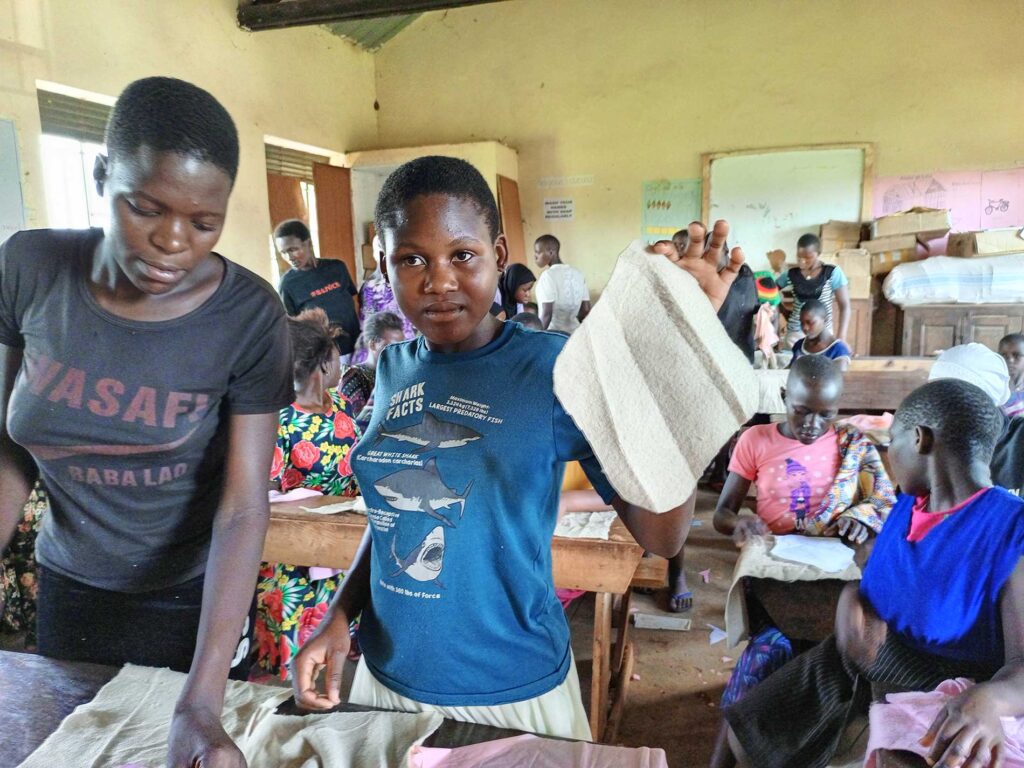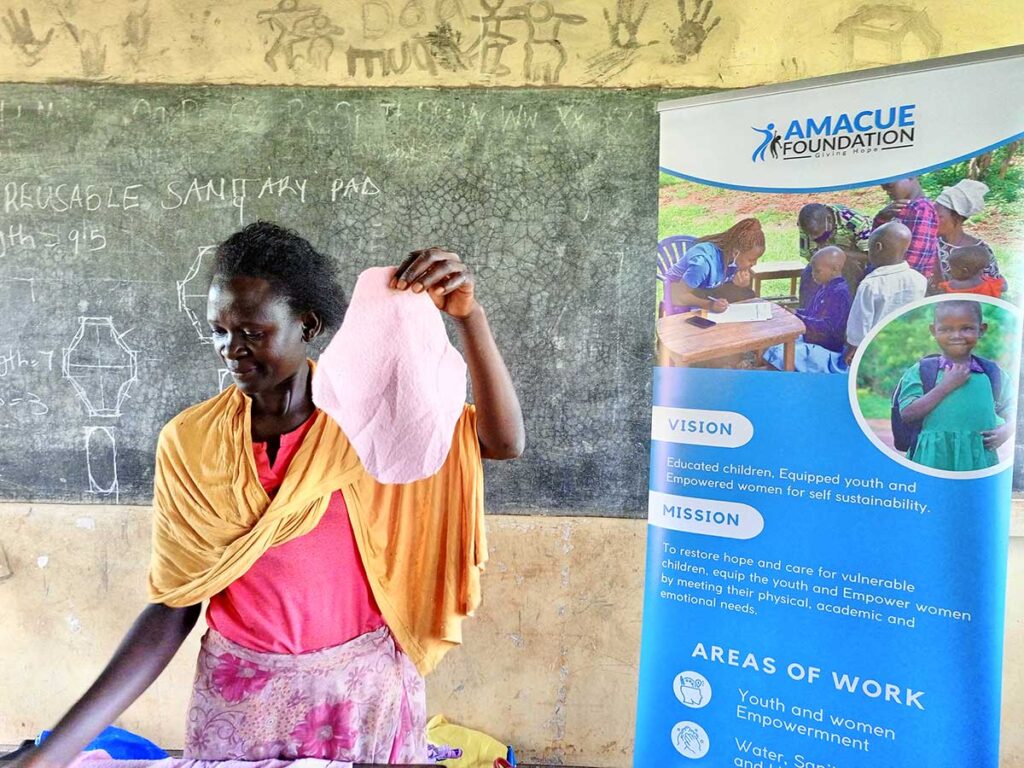Menstrual Health and Hygiene
Menstrual health and hygiene influence the well-being, opportunities and choices of girls and women and can negatively impact health, education and economic development.
Most girls and women in Budhutu Busibe use pieces of old/rugged clothes to manage their cycles. However, this is unhygienic and challenging for the girls with a heavy flow since they easily spill. Girls face stigma at school, lack of sanitary pads and underwear, and no privacy as the schools don’t have changing rooms and female-friendly washrooms and toilets. Consequently, many girls opt to miss school during their cycles simply because they don’t have the necessary material to handle their menstruation correctly.

According to National Population and Housing census report 2017, approximately 87.2% girls aged 15 and above dropped out of school in Buzaaya Kamuli District. Period poverty being one of the major causes.

How we are changing the trajectory of girls and women
Through our Menstrual Health and Hygiene (MHH) project, we’re ending period poverty and empowering girls and women.
The project focus is on making and distributing reusable sanitary pads. This will end period poverty by providing access to clean and affordable reusable sanitary pads for managing menstruation, sensitization and access to accurate and contextual information on menstruation, and empower women with the skill to establish an income-generating activity by making reusable sanitary pads.
